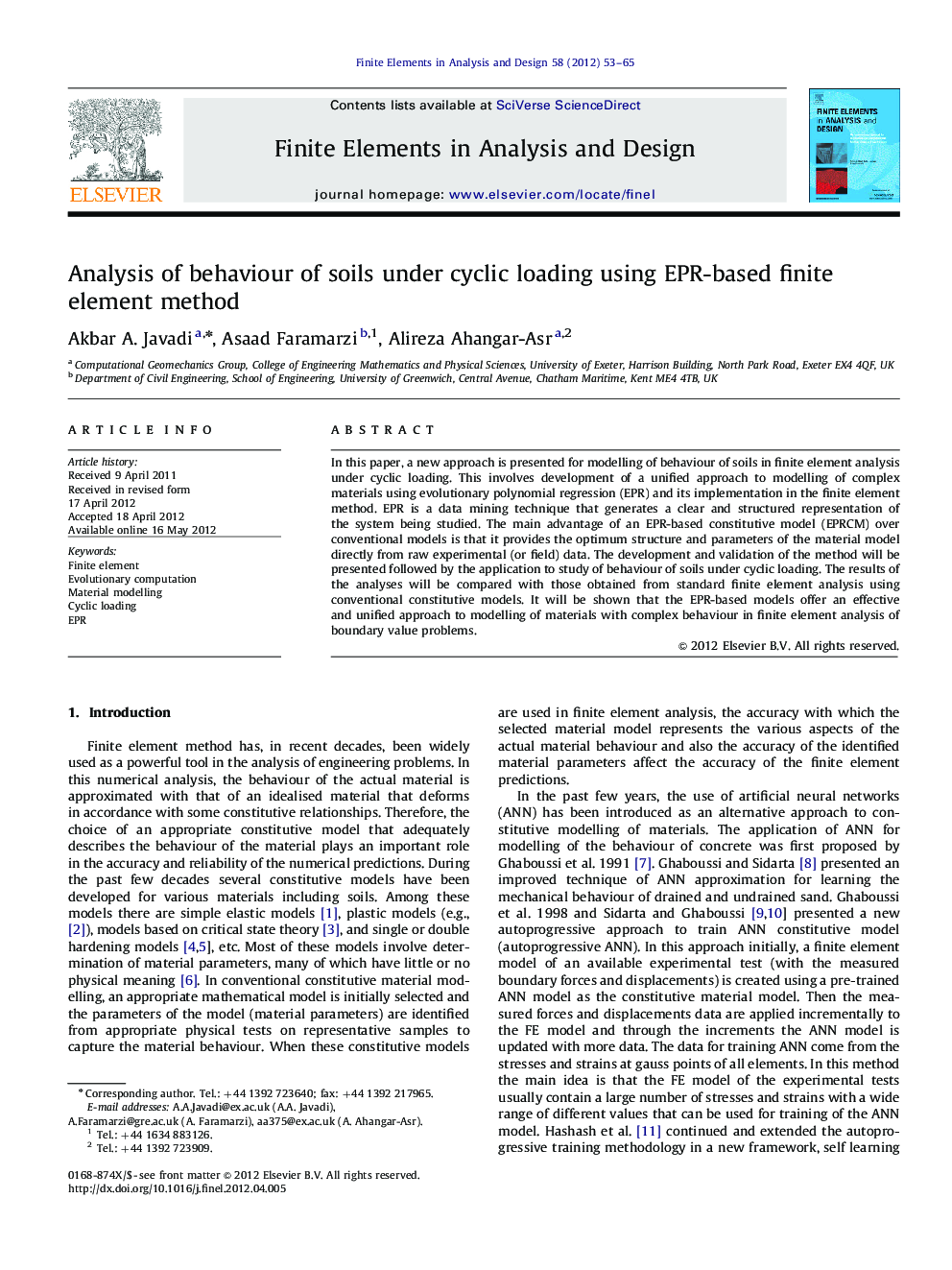| Article ID | Journal | Published Year | Pages | File Type |
|---|---|---|---|---|
| 513894 | Finite Elements in Analysis and Design | 2012 | 13 Pages |
In this paper, a new approach is presented for modelling of behaviour of soils in finite element analysis under cyclic loading. This involves development of a unified approach to modelling of complex materials using evolutionary polynomial regression (EPR) and its implementation in the finite element method. EPR is a data mining technique that generates a clear and structured representation of the system being studied. The main advantage of an EPR-based constitutive model (EPRCM) over conventional models is that it provides the optimum structure and parameters of the material model directly from raw experimental (or field) data. The development and validation of the method will be presented followed by the application to study of behaviour of soils under cyclic loading. The results of the analyses will be compared with those obtained from standard finite element analysis using conventional constitutive models. It will be shown that the EPR-based models offer an effective and unified approach to modelling of materials with complex behaviour in finite element analysis of boundary value problems.
► We present a new approach for modelling of behaviour of soils under cyclic loading. ► EPR models are developed from data and incorporated in FEM. ► EPR models can generalise the behaviour to cyclic patterns not introduced during training. ► The proposed approach is effective and robust in modelling cyclic behaviour of soils.
